|
|
|
|
Governments around the world are increasingly committing to more ambitious climate targets. It sounds like good news after decades of climate scientists imploring urgent emissions cuts, but a new report from the International Energy Agency shows it’s barely a first step.
The report said even if all these targets were met, the planet would still warm by a dangerous 2.1℃. So it came up with a world-first roadmap for bringing global emissions down to net zero by 2050. And it was abundantly clear: no new fossil fuel projects should be approved.
Meanwhile, the Morrison government did the exact opposite, announcing $600 million for a major new gas-fired power plant. In today’s lead story, Deakin University’s Samantha Hepburn calls this move “reckless and unfair”. We have the resources and economic strength to transform our energy sector, unlike many developing countries. But we choose not to do this.
And as Arjuna Dibley writes, the government’s new gas plant funding is inconsistent with research showing government-owned companies can help drive clean energy innovation. Such companies are often branded as uncompetitive, stuck in the past and unable to innovate. But in fact, they’re sometimes better suited than private firms to take investment risks and test speculative technologies.
If the investments are successful, taxpayers, the private sector and consumers share the benefits.
|
Anthea Batsakis
Deputy Editor: Environment + Energy
|

|
|
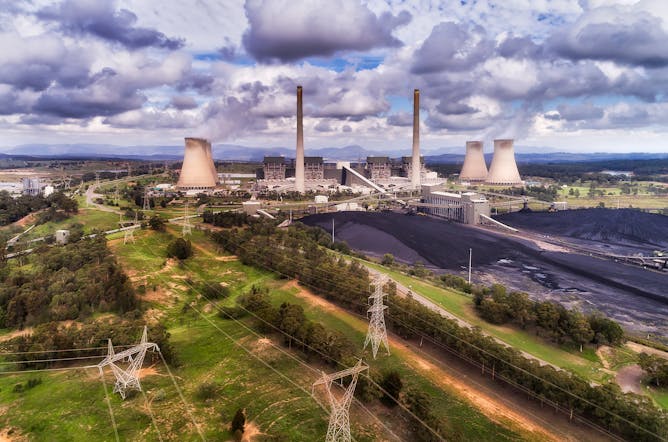
Shutterstock
Samantha Hepburn, Deakin University
A global energy authority created a roadmap for the world to reach net-zero emissions by 2050. Meanwhile, Australia committed $600 million for a major new gas plant.
|
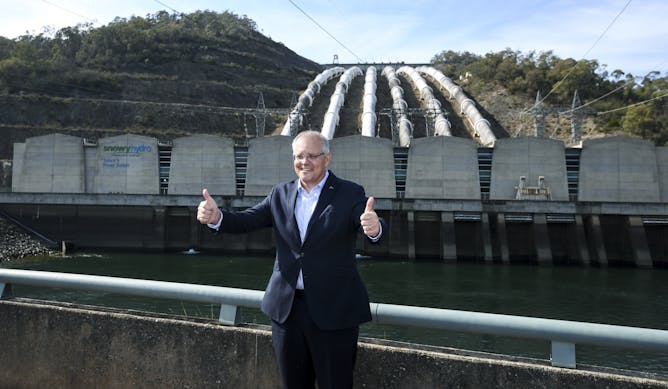
Lukas Coch/AAP
Arjuna Dibley, The University of Melbourne
Government-owned firms are often branded as uncompetitive, stuck in the past and unable to truly innovate. But they're sometimes better suited than private firms to drive new, clean technologies.
|

AAP/EPA/Mohammed Saber
Annabelle Lukin, Macquarie University
Journalistic ethics demand 'objectivity' in reporting – but language forces us to take a position.
|
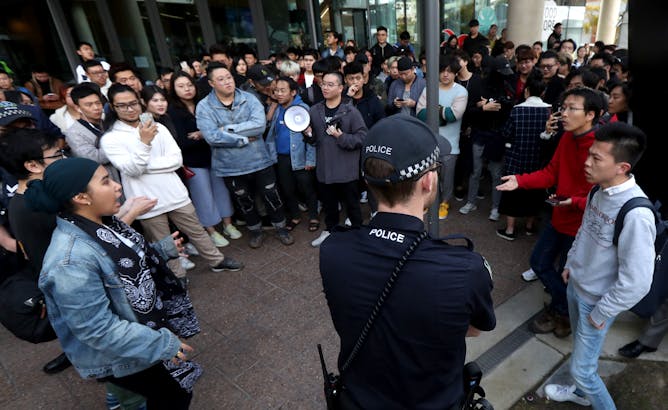
Kelly Barnes/AAP
Minglu Chen, University of Sydney
Increasingly strained relations between the two countries are adding to the challenges of teaching students enrolled in Chinese studies at Australian universities.
|
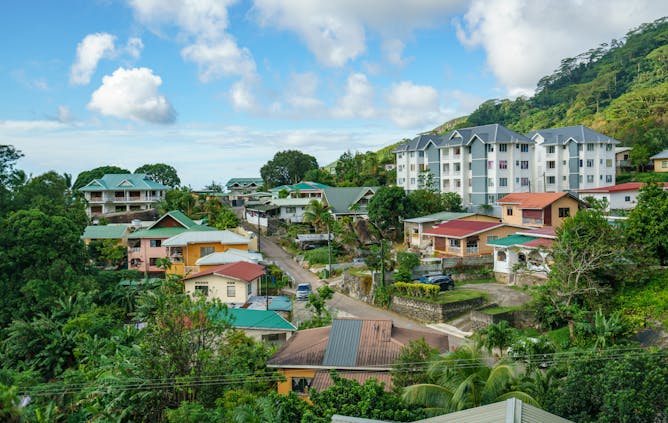
Houses in the city of Victoria, the capital of Seychelles.
Shutterstock
C Raina MacIntyre, UNSW
What does the Seychelles experience tell us about variants, vaccine efficacy and herd immunity?
|

Shutterstock
Stephen Whyte, Queensland University of Technology; Benno Torgler, Queensland University of Technology; Ho Fai Chan, Queensland University of Technology; Rob Brooks, UNSW
Each year, more and more people are looking to dating apps to find a partner. And a trove of data from these users is finally revealing what men and women really want.
|

AAP Image/Supplied by EBU, Jess Gleeson
Jess Carniel, University of Southern Queensland
Australia was the only nation to perform 'live-on-tape' in the first Eurovision semi-final. Some suggest this hindered our chances, but taped performances may be the way of the future.
|
Cities
|
-
Matthew Mclaughlin, University of Newcastle; Ben Beck, Monash University; Julie Brown, George Institute for Global Health; Megan Sharkey, UNSW
The push for 30km/h speed limits is not about revenue-raising or anti-cars. Even a seemingly small decrease from 40km/h to 30km/h makes a huge difference to the safety and liveability of local streets.
|
|
Health + Medicine
|
-
Jessica Kaufman, Murdoch Children's Research Institute; Holly Seale, UNSW; Julie Leask, University of Sydney; Margie Danchin, Murdoch Children's Research Institute
Community leaders or trusted work colleagues can be COVID vaccine advocates and help boost vaccination rates. Here are some simple steps they can take.
-
Stephen Duckett, Grattan Institute; Anika Stobart, Grattan Institute
A sustainable private health insurance system requires enough young, healthy people paying premiums and not making claims. But government policies haven't achieved this. Here's what to try instead.
-
Ben White, Queensland University of Technology; Lindy Willmott, Queensland University of Technology
Draft legislation which would see voluntary assisted dying allowed in Queensland will be introduced into the state's parliament next week. So how does the proposed law compare to other states?
|
|
Business + Economy
|
-
Malcolm Whyte, Australian National University
Money can help buy medals, but it doesn't seem to buy more medals per capita or more medals per dollar of GDP.
-
Alex Veen, University of Sydney; Caleb Goods, The University of Western Australia; Rick Sullivan, University of Sydney; Tom Barratt, Edith Cowan University
The Fair Work Commission's ruling that delivery rider Diego Franco was an employee of Deliveroo is a major legal win for Australia's gig workers.
|
|
Politics + Society
|
-
Claire Breen, University of Waikato
Existing gender and ethnic pay gaps in the public service complicate using wage restraint to improve the lot of the lowest paid.
-
Michelle Grattan, University of Canberra
Michelle Grattan discusses the aged sector, in particular its funding, and the Tokyo Olympics with Senator Richard Colbeck
|
|
Environment + Energy
|
-
Sam Crawley, Te Herenga Waka — Victoria University of Wellington
Vested interests have lobbied against climate policy worldwide, but that's only one reason for the slow political response. While most people want climate action, they rank other issues as more urgent.
|
|
Arts + Culture
|
-
Bianka Vidonja Balanzategui, James Cook University; Claire Brennan, James Cook University
Brought out to work on the sugar plantations, Annie was a woman of colour who defied all odds to participate in a predominantly white community.
|
|
| |
Featured jobs
|

|
|

|
— Canberra ACT, Australia
|

|
— Townsville QLD, Australia
|

|
— South Wharf VIC, Australia
|
|
|
|
| |
| |
| |
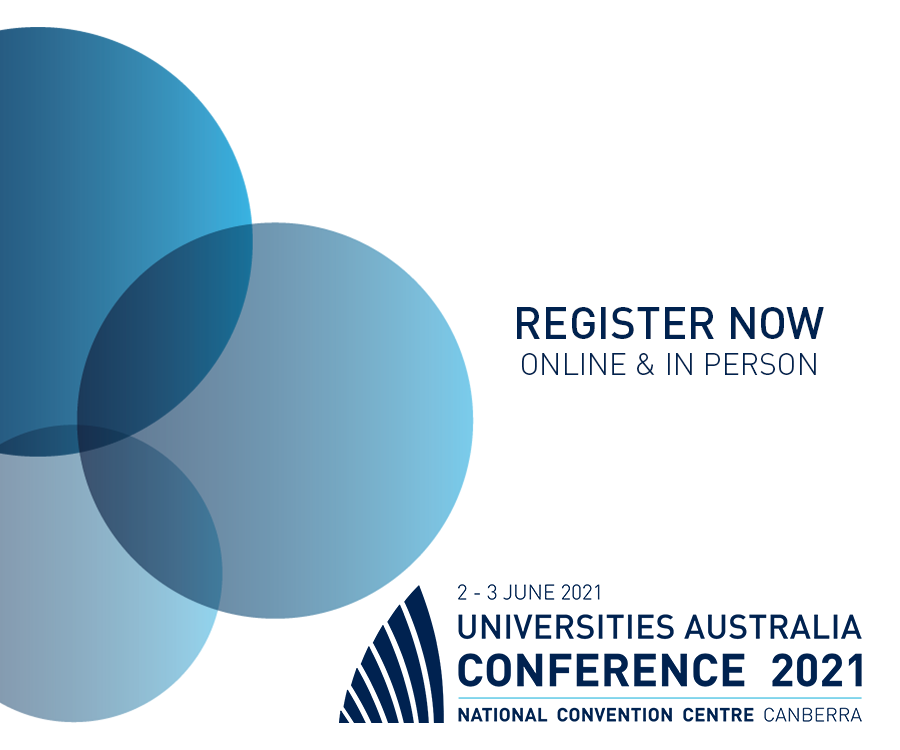
|
| |
| |
| |
Featured Events & Courses
|

|
191 Boundary St, West End, Queensland, 4101, Australia — The Conversation
|

|
Online, Free webinar, Australian Capital Territory, 3000, Australia — Australia and New Zealand School of Government (ANZSOG)
|

|
Building 1, 270 Joondalup Drive, Joondalup, Western Australia, 6027, Australia — Edith Cowan University
|

|
online webinar, Perth, Western Australia, 6009, Australia — The University of Western Australia
|
|
|
|
| |
| |
| |
| |
| |
|
|
|
|
|
|
|